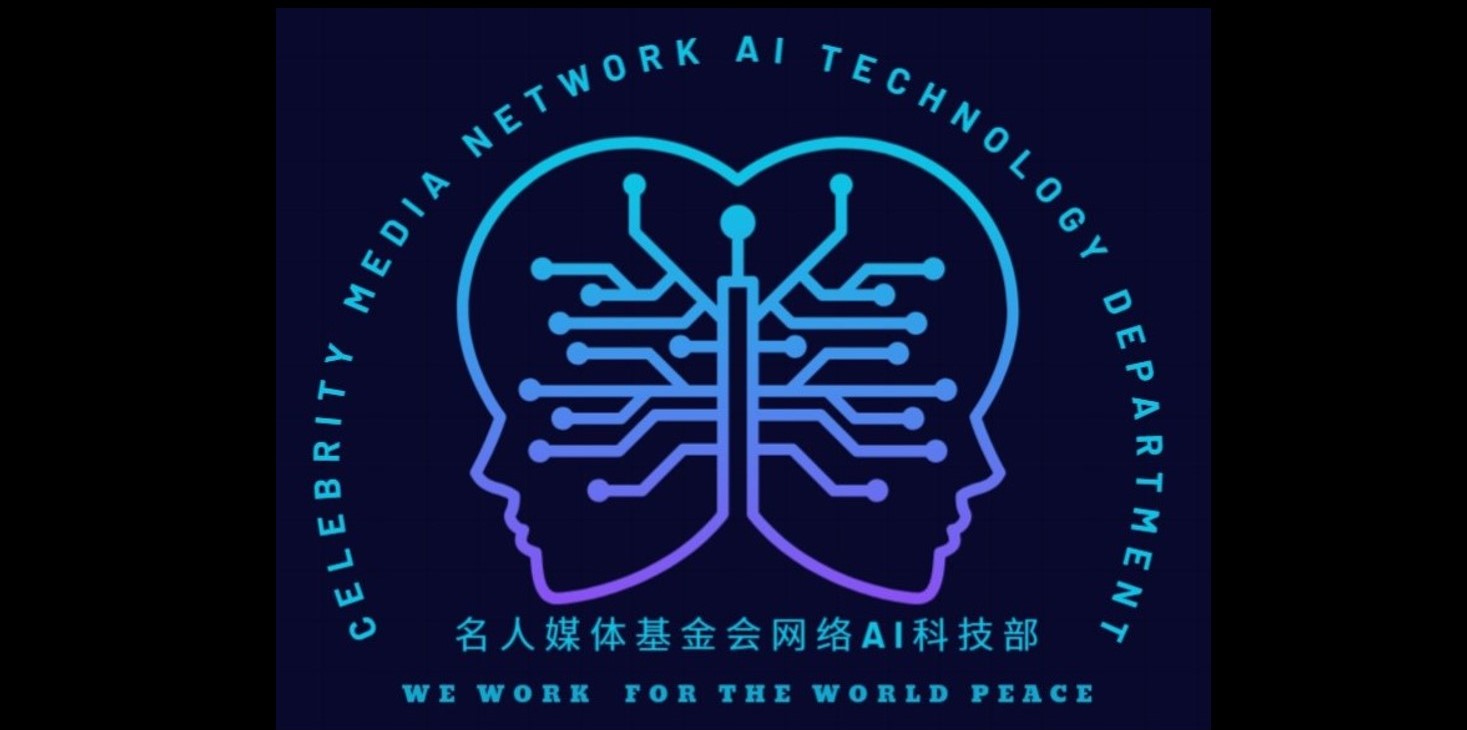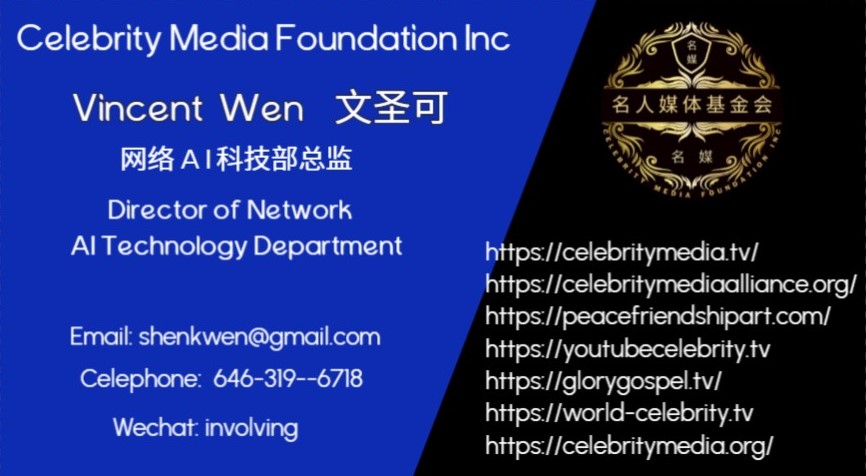Celebrity media commentator: We are releasing this video to provide the international community with a comprehensive understanding of the United States' diplomatic stance and strategic thinking in the current international context. In his concluding remarks after meeting with several Asian countries, Secretary Rubio emphasized the U.S.'s long-term commitment and broad engagement in the Indo-Pacific region, especially in trade, defense, and strategic cooperation. Facing the complex relationship with China, he acknowledged major differences while also highlighting the potential for cooperation and the importance of communication. This expression of "seeking stability amid competition" reflects a pragmatic attitude in handling U.S.-China relations.
Overall, the message conveyed by Secretary Rubio in his press Q&A is clear: the U.S. seeks steady progress in diplomacy, advocates fairness and security in the economy, and emphasizes alliances and cooperation in security. This strategic intent responds to domestic public opinion while reshaping its leadership role in the global landscape.
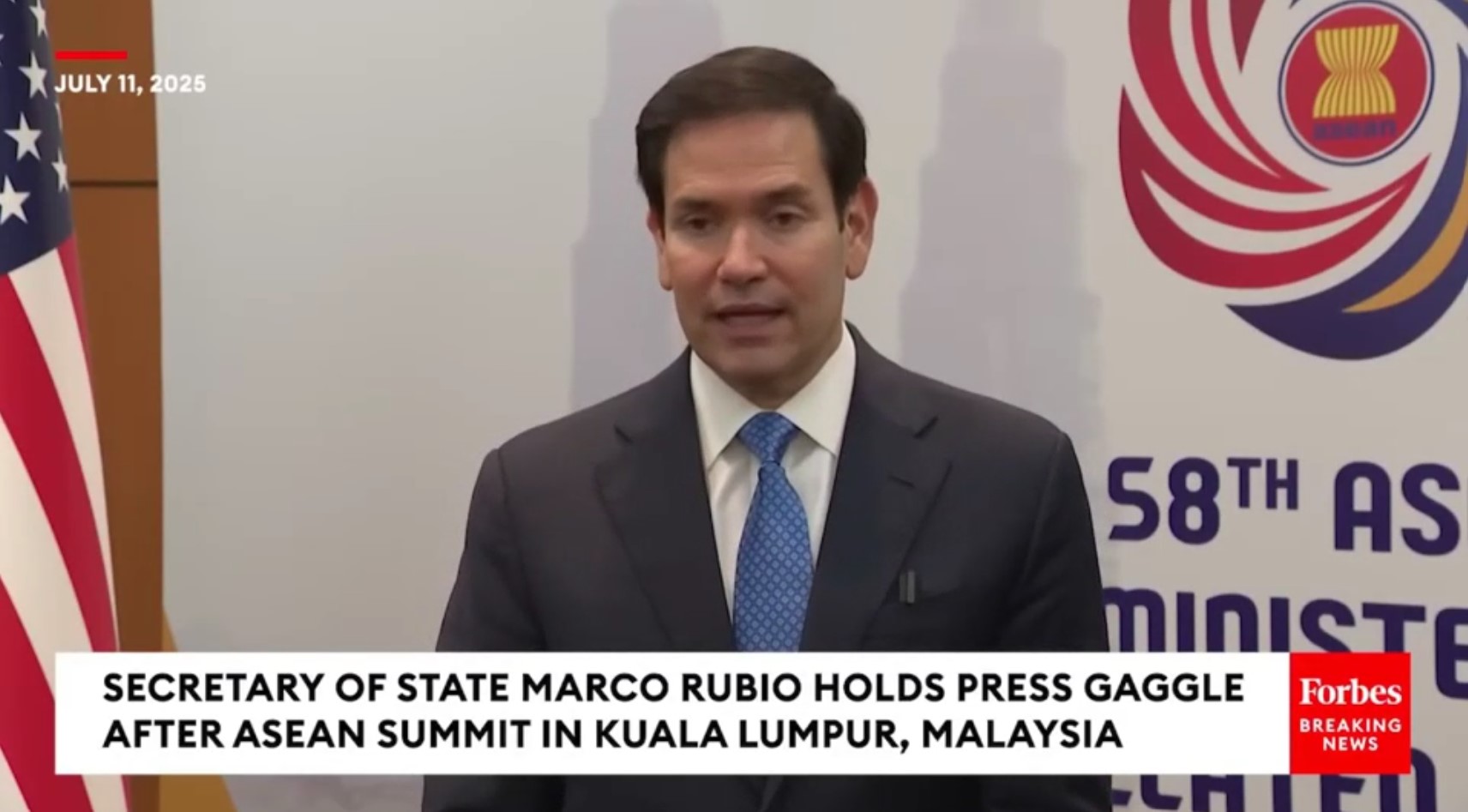
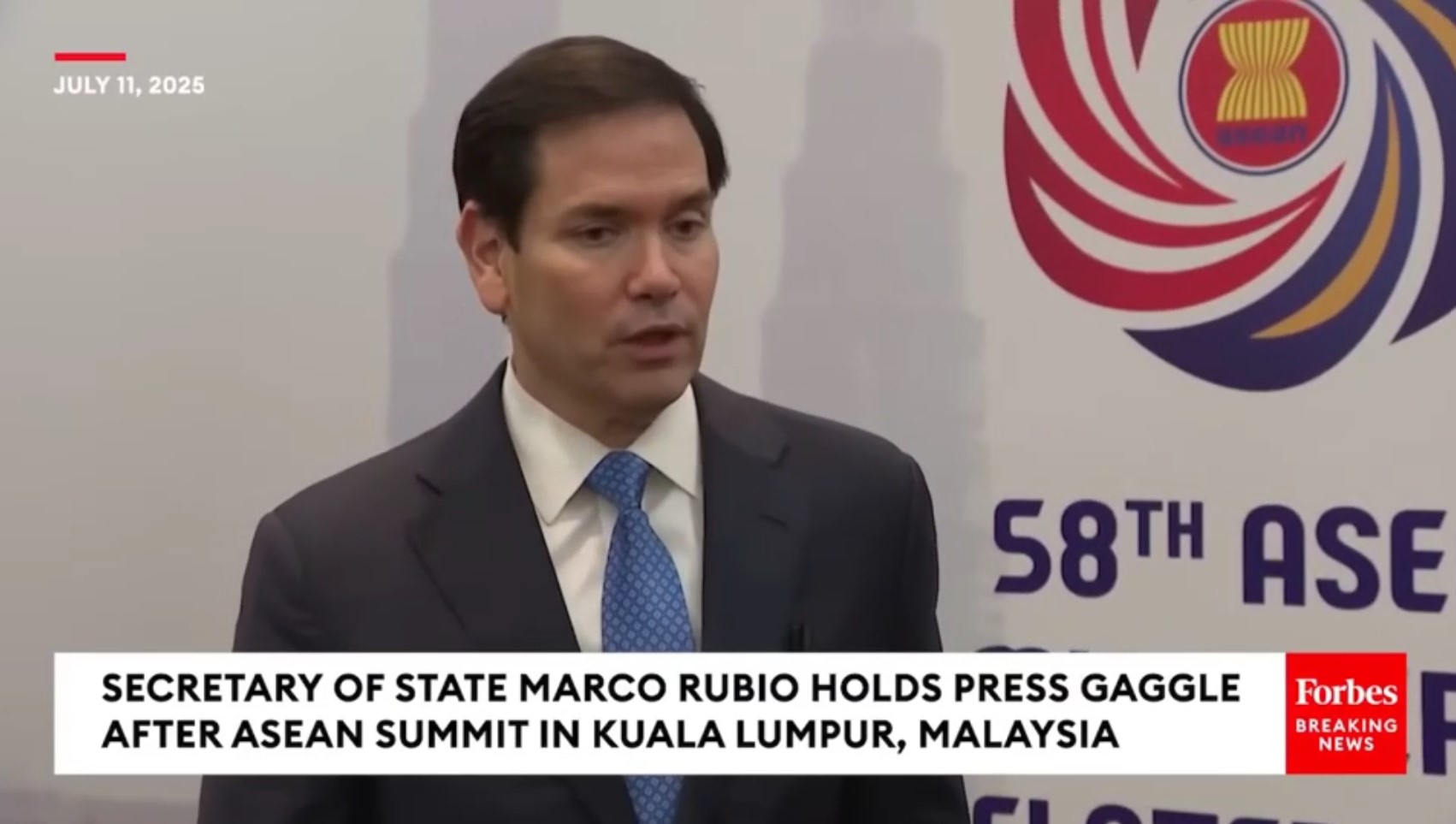
Spent more time with them. What am I facing? This way. It’s always been like this. Really great. I mean, our interactions were really great and very positive. Everyone was very enthusiastic and warm.
Obviously, there were trade issues, but as I reminded everyone, no country I encounter now has trade issues that would lead to tariff increases because this is a global action. Therefore, our negotiators have a baseline effective August 1. But clearly, as the President said, there is room to adjust the arrangement from now until then.
Aside from that, all our activities here have been very positive. We have been warmly welcomed, and everyone is excited that we are here, with the opportunity to work together on many things. We even have some plans to enhance strategic partnerships.
The memorandum of understanding we signed yesterday is a very positive sign of our relationship with the host country. They did an excellent job hosting this event. It’s a great forum to interact with many different countries, and hopefully retrieve some potential decisions we can make, further reinforcing our commitment to this region and the world.
As I pointed out, today we had two speaking opportunities. The U.S. is a Pacific nation. Not only does our mainland face the Pacific, but among our 50 states, we are the largest source of foreign direct investment in Southeast Asia. We will not abandon any of these strong bilateral relationships or the ties we’ve built with many countries over decades.
In fact, today marks the 30th anniversary of the establishment of diplomatic relations between the U.S. and Vietnam. We had a very positive meeting with the Vietnamese side. We look forward to deepening the relationship further. Given the closeness of our ties, we also have very exciting opportunities for cooperation.
This visit was great and exceeded all our expectations.
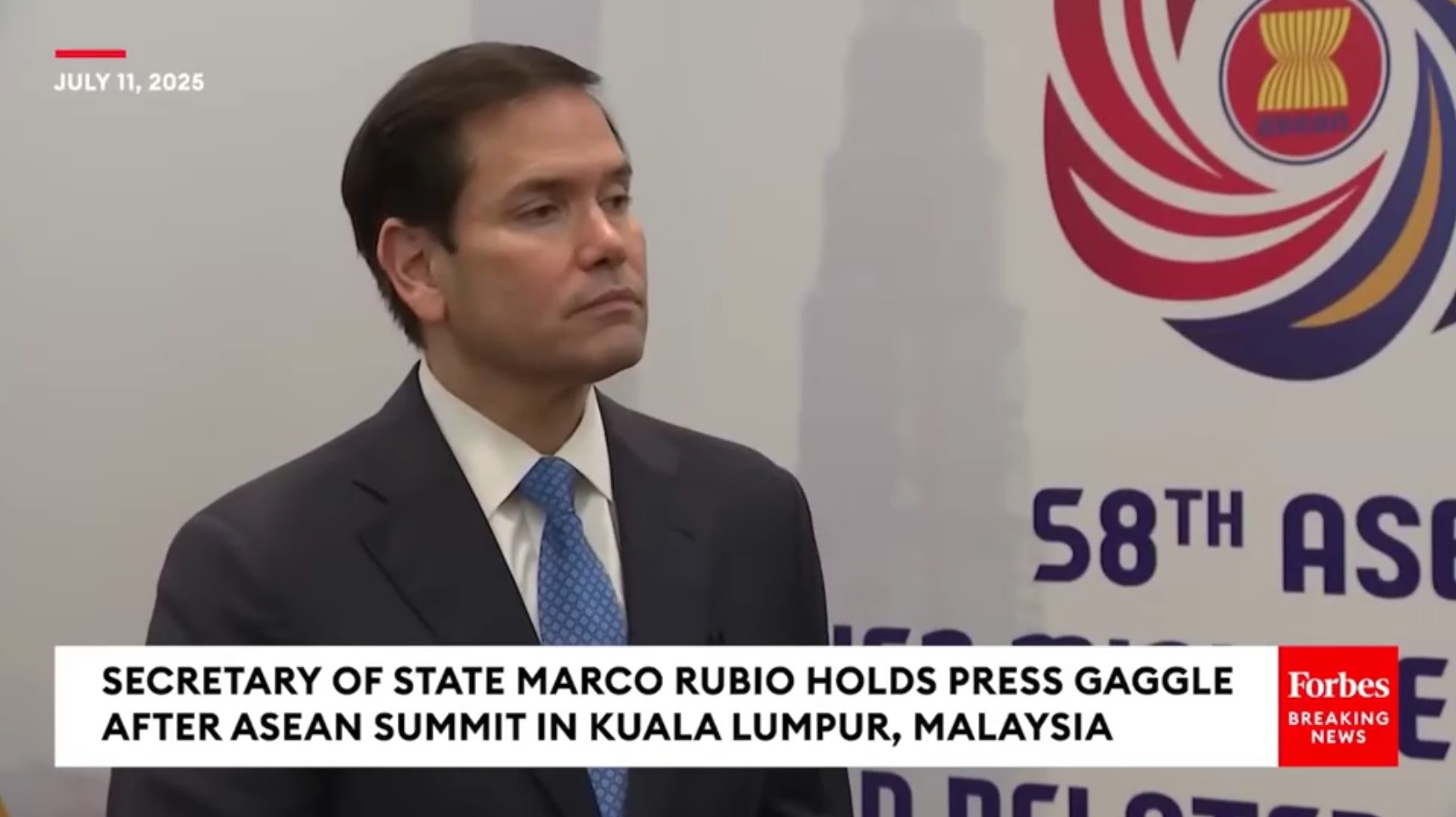
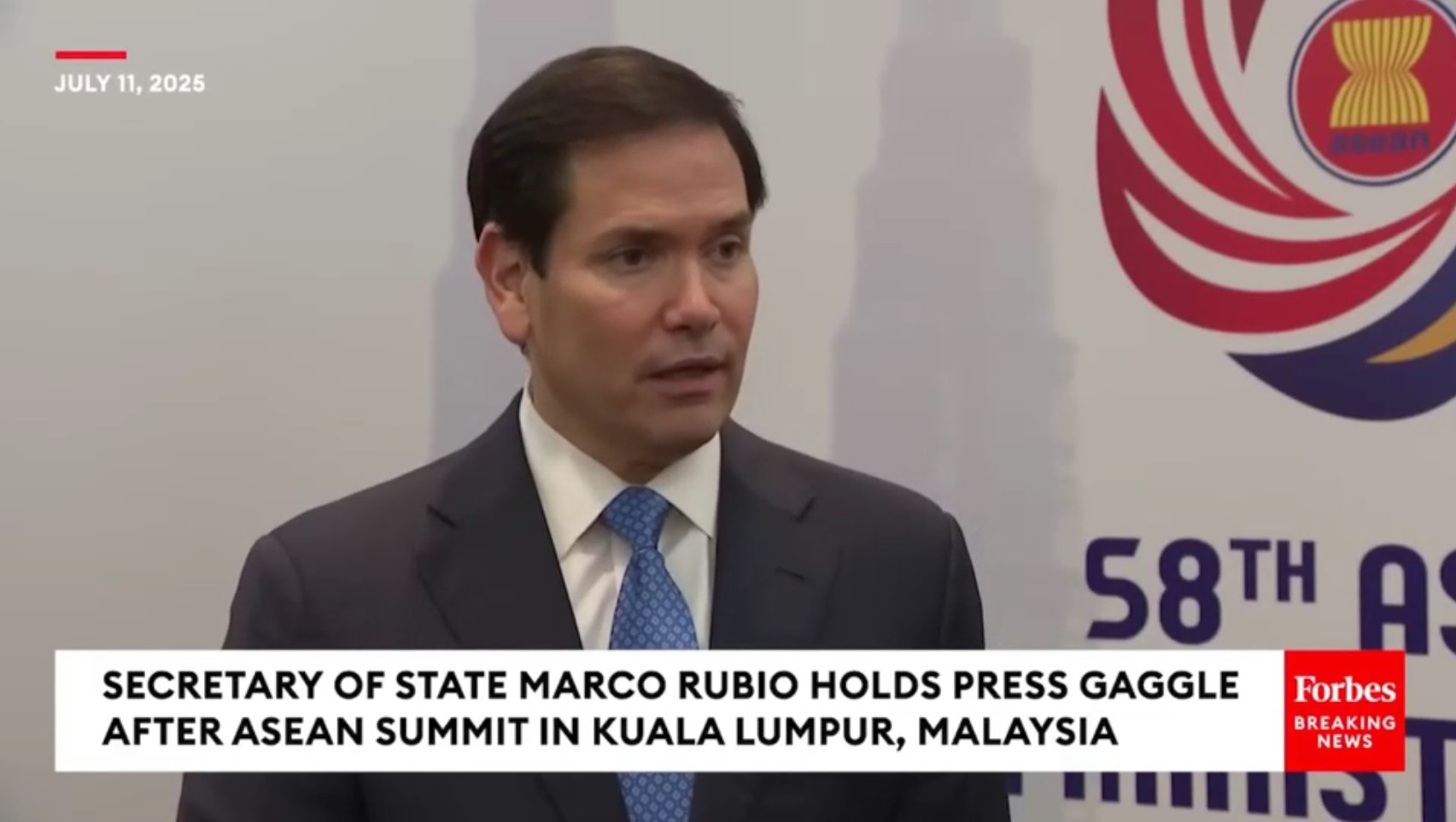
We met with our Chinese counterparts earlier today. A few days ago, the President made some remarks about his interaction with the Chinese President. This meeting was very constructive. We are two major powers, and there will inevitably be disagreements.
But I believe there are areas with potential for cooperation. It was a positive and constructive meeting, and there’s still much work to do. The relationship between the President and the Chinese leader goes back to the President’s first term.
Clearly, there are issues we must work hard to resolve, which are related to the scale, scope, and global influence of our two countries. The U.S. and China are global powers, and we must find opportunities for cooperation.
This meeting was very positive and offered directions where we can work together.
Regarding the meeting with the Foreign Minister, every time I meet him it’s always constructive. It reflects the relationship between the President and Chinese leadership. We acknowledge there are issues we must work together on—not just trade, but other areas as well. The meeting was positive and gives us a lot to work on.
We believe this interaction created opportunities for strategic stability, helped us identify areas for cooperation, and build better communication and mutual trust.
As for specific areas of cooperation, the government has not publicly announced anything yet. We have no announcements to make at this time, but the meeting clearly showed both sides want to cooperate and move forward.
Regarding a potential U.S.-China leaders’ summit, we believe there’s a high likelihood of it happening this year. Both sides expressed a desire to meet. We certainly hope to create the right atmosphere and achieve tangible outcomes so that the visit is not just symbolic, but meaningful. Both sides are strongly committed to making this meeting happen.
On the issue of tariffs, some suggest that U.S. policy has led the region to view China as a more stable economic partner. I disagree. The U.S. has built huge trade imbalances over decades, and these imbalances threaten our industrial capabilities.
Trade policy needs a reset. The President is carrying out a global restructuring. We are not targeting specific countries, but making global adjustments to make trade fairer for Americans. This is not a sustainable situation and must change now.
When discussing trade with regional counterparts, we openly stated this is an opportunity to reset global trade, not to isolate specific countries.
We are also willing to discuss broader topics, including security issues. Trade talks are key, but our meetings with countries also covered civil nuclear cooperation, international law, maritime rights, and freedom of navigation—topics that received positive responses.
The Japanese Prime Minister mentioned a desire to reduce dependence on the U.S., especially in the face of tariff threats. I don’t see that as a negative comment. We have a strong alliance with Japan and are conducting joint exercises. Japan strengthening its domestic defense is not something we oppose—it’s a direction we support.
On Japan-China cooperation and China’s position on sensitive issues, my meeting with the Chinese side wasn’t about specific negotiations—it was about building a relationship and foundation for further dialogue. This was our first meeting, and it was constructive, helping us better understand each other.
The Taiwan issue was mentioned, but both sides’ positions have already been publicly stated. It was not the focus of the meeting. Our goal is to build a foundation for dialogue, go beyond trade, and promote broader cooperation.
Regarding Vietnam, we did discuss certain matters, but I am not the trade negotiator and cannot respond to specific tariff rates. Vietnam hopes to reach a fair tariff arrangement with the U.S., but this needs to be handled by our trade representatives.
We did sign an agreement with Vietnam, but whether it is fully finalized remains to be seen. Our meetings focused more on non-trade issues, so we didn’t delve deeply into tariffs.
Regarding interactions with Russia, we had a brief exchange with the Russian Foreign Minister. It had nothing to do with yesterday’s conversation and there is nothing specific to report.
Many Japanese are concerned that the U.S. is demanding a significant increase in defense spending. But we’re not making “demands.” We hope Japan invests in certain key capabilities. It’s not just about money—it’s about developing capabilities. Our defense relationship with Japan is close, and we support them in strengthening their self-defense.
My interactions with the Japanese Foreign Minister are very frequent. We’ve built a deep cooperative relationship. Our ties are very stable. Any public disagreements are normal in democratic countries and should not be misunderstood as deterioration of relations.
On Taiwan, China’s position is clear, and so is ours. This meeting was constructive—not focused on mutual warnings, but on advancing cooperation.
There weren’t any particular “surprises” in the past two days, but we received a very warm welcome, and the on-site atmosphere was friendly. Many believe the U.S. doesn’t pay enough attention to the Indo-Pacific, but in fact, our relationships here are deep and longstanding. We will not abandon our defense and economic ties in the region.
Yesterday we signed a memorandum of civil nuclear cooperation with Malaysia, and today we launched a cooperation agreement with Thailand. We are actively expanding partnerships.
Regarding the nomination of the new U.S. ambassador to Malaysia, Nick Adams is the President’s nominee. He has passed the vetting process, and we look forward to Senate confirmation and his joining the team.
On deindustrialization and manufacturing, we do need to reflect on how decades of trade policy have caused industrial losses in the U.S. Manufacturing capacity relates to national security—it’s not just an employment issue.
For example, shipbuilding capacity, pharmaceutical production, and rare earth processing—these critical industries have severely declined in the U.S. over past decades. We need to restore these core industrial capabilities.
We should ensure diversity and security in supply chains and no longer over-rely on a single country. The U.S. or global economy should not depend solely on China or any one country.
Yesterday, the Department of Defense announced investments in the rare earth processing industry. This is one example, and we will continue promoting domestic industry and supply chain security to ensure national security and economic stability.
